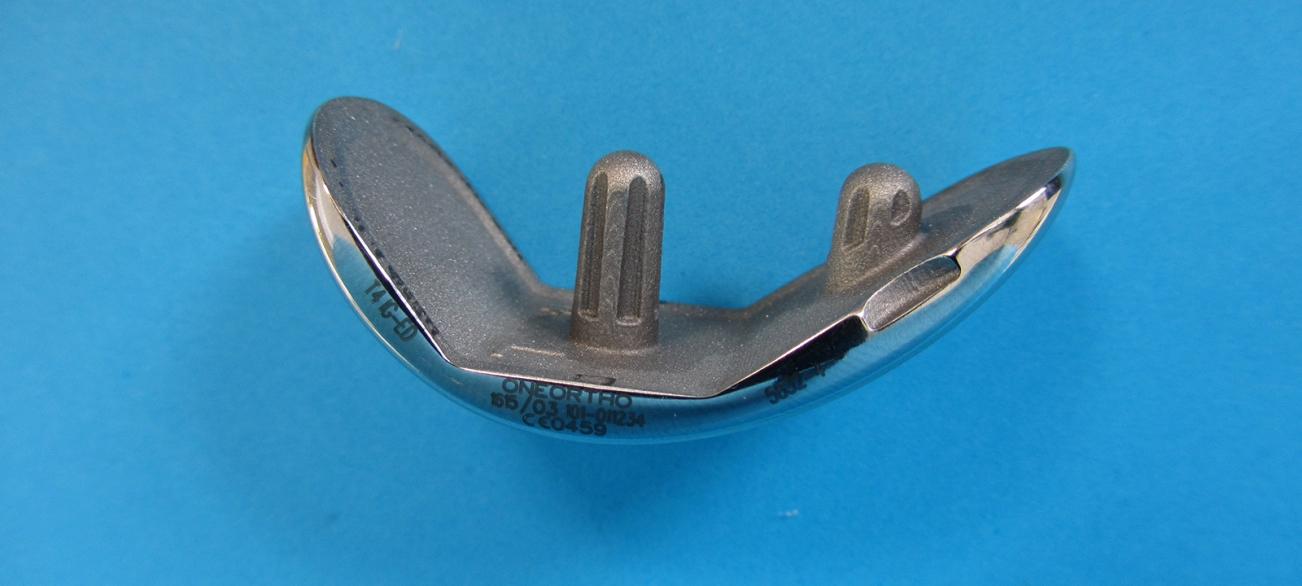To avoid implanting total knee prostheses when the arthrosis phenomena which handicap the patients are only localised, Oneortho Medical has de-veloped unicompartmental knee prostheses. In order to qualify its new products, the company, a subsidiary of the Menix Group, asked Cetim experts to perform several types of tests (fatigue, wear, salt spray, etc.). “Our fixed condyles underwent several fatigue tests at 200 daN for 5 million cycles, explains Théo Vidal, Oneortho Medical quality manager. None of these tests led to any particular failure.”
Wear tests
Two wear tests were then performed on two prostheses placed side by side. These tests were based on standard ISO 14243:2014 which specifies the angular movement between the articulating components, the pattern of the applied force, and the speed and duration of testing. The inserts had been previously aged in accordance with ASTM F 2003-02 (2008). The tests were performed on a specifically designed walking simulator which made it possible to reproduce the movements of the joint. “The two implants reached five million cycles without any failure and the wear rates found (0.94 and 1.82 mg per million of cycles) were the lowest ones in the series of indicators referenced in Cetim’s database. The wear performance of the polyethylene of the prosthesis was also validated”, continues Théo Vidal. Finally, additional tests were performed in accordance with the requirements of standard NF EN ISO 9227:2012 (NSS) in order to determine the neutral salt spray corrosion resistance of three passivated and non-passivated chromium-cobalt bases, and the parts did not exhibit any signs of corrosion after the 1,000 hours of testing. Théo Vidal further adds : “These good results were obtained in record time, thanks to the complementarity of Cetim’s teams, which are experts in the biomedical field.”



